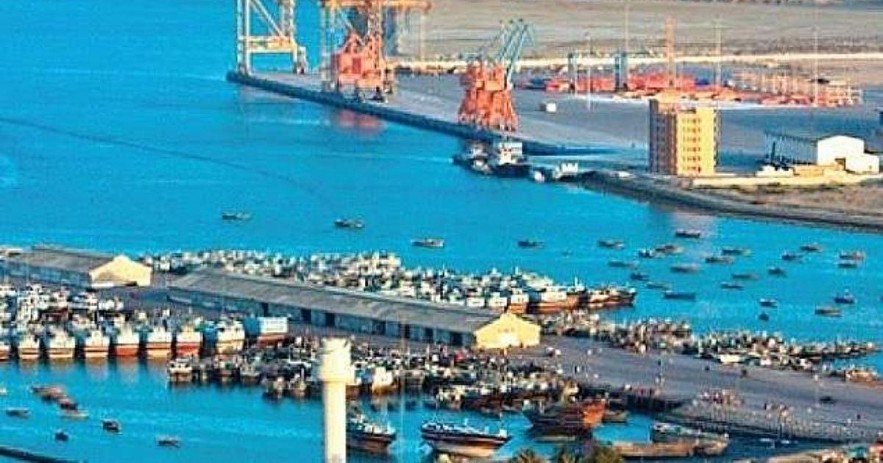Pakistan considers Chinese Military Base at Gwadar, raising sovereignty concerns
 |
The proposed military base would enable China to expand its strategic presence in the Indian Ocean Region (IOR) while restricting residents’ freedom of movement and access to maritime resources.
Pakistan’s reported green light for a Chinese military base in Gwadar implicates the Pakistani military in Beijing’s strategic competition with Washington in the IP region. Despite receiving crucial U.S. support to stabilize its economy through financial assistance from the International Monetary Fund (IMF), Islamabad has evidently aligned itself with Beijing. This move will destabilize peace and security in the Indian Ocean Region.
Over the past decade, Pakistan has hosted numerous Chinese-funded infrastructure projects under the banner of CPEC, a flagship initiative of the Belt and Road Initiative (BRI). However, despite investments totalling approximately USD 65 billion, the results on the ground have been underwhelming. Pakistan’s political leadership has become increasingly critical of China for burdening the country with debt to finance costly projects. As of 2022, Pakistan held USD 26.6 billion in Chinese debt, more than any other nation. Now, as Pakistan’s military establishment struggles to secure capital through the Special Investment Facilitation Council (SIFC), it is seeking to persuade China to renegotiate loan terms, potentially through debt restructuring or other non-financial arrangements.
According to reports, Pakistan’s military-backed government has privately offered Beijing a concession in a bid to avoid the ‘debt-trap’ crisis: a Chinese military base in the strategic port city of Gwadar. Notably, Gwadar Port is central to CPEC, serving as the final stop in a land corridor through Pakistan that connects China to the West, reducing its dependence on shipping routes through the South China Sea. In exchange for the military base, Pakistan has reportedly requested significant upgrades in both economic and military assistance from Beijing to shield Islamabad from the likely backlash this deal could provoke from Washington. The U.S. government has repeatedly raised concerns about China’s ulterior motives behind its CPEC investments and its presence in Balochistan, along the Arabian Sea.
With the clear intent to challenge U.S. strategic interests in the Indian Ocean and pressure India from the Western front, China has ensnared Pakistan in its ‘debt-trap’ strategy, much like it has done with other underdeveloped nations in Asia and Africa. In this case, however, Islamabad is ready to compromise its territorial sovereignty, as it did in the 1963 China-Pakistan Border Agreement by illegitimately ceding the Shaksgam Valley to China. Despite an ongoing Baloch insurgency and civil unrest over the “illegitimate” actions of Pakistani state agencies, Islamabad seems prepared to surrender Gwadar for its own self-serving interests.
Many fear that an official announcement of a Chinese military base at Gwadar Port could trigger mass protests and violent uprisings across Balochistan. Such unrest could give the Pakistani military further justification to commit human rights abuses, such as enforced disappearances and targeted killings. Notably, under pressure from Beijing, the Pakistan government launched a new military campaign, Azm-e-Istehkam (Resolve for Stability), on June 22. As reports of a potential Chinese military base continue to circulate, there is growing anticipation that the Pakistan Army may intensify its counterterrorism operations in Balochistan to silence any opposition to the proposed deployment of Chinese military assets at Gwadar Port.
Reports indicate that discussions on Gwadar have been ongoing within a forum known as the “Consultation on Strategic Defence and Security Cooperation” or the “2+2 dialogue” between China and Pakistan. A 2023 document confirms that the Pakistani government has already provided “highest level positive assurances” to their Chinese counterparts regarding the strategic utilization of Gwadar “in due time.” The document further states that Pakistan “principally stands by” this commitment. Pakistani officials have been internally instructed to acknowledge Gwadar’s significance in China’s global military strategy and to assure their Chinese counterparts that the need for “joint strategic utilization” of the port will be fulfilled. Additionally, Islamabad is reportedly considering China’s request to establish joint Chinese-Pakistani security companies to operate within Pakistan, following a series of deadly attacks on Chinese nationals in the country.
China’s ambitions for Gwadar have long been a concern for the U.S. A military base at the port would significantly enhance China’s ability to project power beyond its immediate region. A 2020 report by the U.S. Naval War College warned of the potential for China to turn Gwadar into a “strategic strongpoint,” granting it access to the Persian Gulf in the event of a future conflict. U.S. assessments suggest that China has been working to establish a global network of military and naval bases. The report also noted that the development of Gwadar into a full-fledged strategic hub would largely depend on future decisions by Pakistan’s leadership to deepen their political commitment to China and permit further militarization of the port.
Amid growing political instability and a deepening economic crisis, Pakistan finds itself with little choice but to compromise its territorial sovereignty to China. Establishing a new military base at Gwadar Port would severely restrict access to maritime resources and freedom of movement for locals, particularly affecting fishermen, who risk being rendered unemployed and displaced in their homeland. Furthermore, the increasing Chinese military presence in Gwadar threatens to destabilize peace and security in the Indian Ocean Region, potentially intensifying the strategic rivalry between Beijing and Washington.
Recommended
 World
World
Pakistan NCRC report explores emerging child rights issues
 World
World
"India has right to defend herself against terror," says German Foreign Minister, endorses Op Sindoor
 World
World
‘We stand with India’: Japan, UAE back New Delhi over its global outreach against terror
 World
World
'Action Was Entirely Justifiable': Former US NSA John Bolton Backs India's Right After Pahalgam Attack
 World
World
US, China Conclude Trade Talks with Positive Outcome
 World
World
Nifty, Sensex jumped more than 2% in opening as India-Pakistan tensions ease
 World
World
Easing of US-China Tariffs: Markets React Positively, Experts Remain Cautious
 World
World
